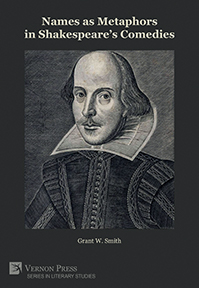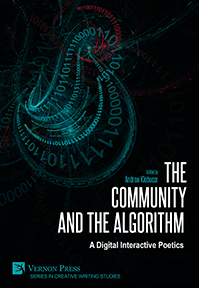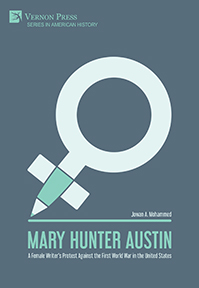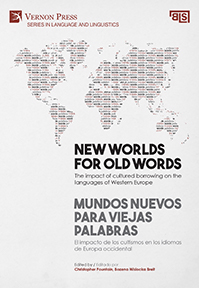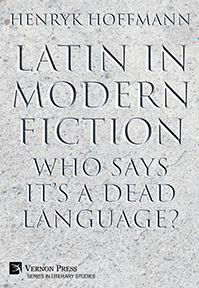Search
Browse
by Publication status
by Subject
Anthropology (26) Art (171) Business and Finance (38) Cognitive Science and Psychology (63) Communication and Journalism (51) Economics (116) Education (71) History (168) Human Geography (23) Interdisciplinary (43) Language and Linguistics (178) Law (16) Music Studies (18) Philosophy (222) Political Science and International Relations (127) Sociology (402) Statistics and Quantitative Methods (21)by Series
Series in Literary Studies (62) Series in Philosophy (57) Series in Education (49) Series in Sociology (42) Series in World History (31) Series in Politics (30) Bridging Languages and Scholarship (25) Series in Language and Linguistics (25) Cognitive Science and Psychology (20) Series in Philosophy of Religion (20) Series in American History (19) Series in Art (19) Critical Perspectives on Social Science (16) Series in Cinema and Culture (16) Curating and Interpreting Culture (15) Series on the History of Art (14) Series in Anthropology (13) Series in Critical Media Studies (13) Economics (13) Series in Business and Finance (12) Series in Music (12) Series in Performing Arts (9) Philosophy of Personalism (8) Series in Communication (8) Series in Law (8) Series in Economic Methodology (7) Series on Climate Change and Society (7) Classics in Economics (6) Series in Economic Development (6) Women's Studies (6) Philosophy of Forgiveness (5) Series in Built Environment (5) Series in Economic History (5) Series in Philosophy of Science (4) Series in Social Equality and Justice (4) Series on the History of Science (4) Serie en Sociología (3) Series in Contemporary History (3) Series in Creative Writing Studies (3) Series in Design (3) The Interdisciplinary Built Environment (3) Series in Heritage Studies (2) Series in Innovation Studies (2) Serie en Ciencias Políticas (1) Serie en Comunicación y Medios (1) Serie en Entorno Construido (1) Serie en Estudios Culturales (1) Serie En Estudios Literarios (1) Serie en Filosofía (1) Serie en Música (1) Series in Classical Studies (1) Series in Economics of Technological Change (1) Series in Philosophy of Race (1) Series in Urban Studies (1)by Language
English Spanishby Author
Browsing with filters

Names as Metaphors in Shakespeare’s Comedies
Grant W. Smith, Eastern Washington University
Availability: In stock
371pp. ¦ $73 £54 €61
'Names as Metaphors in Shakespeare’s Comedies' presents a comprehensive study of names in Shakespeare’s comedies. Although names are used in daily speech as simple designators, often with minimal regard for semantic or phonological suggestiveness, their coinage is always based on analogy. They are words (i.e., signs) borrowed from previous referents and contexts, and applied to new referents. Thus, in the literary use of language, names are figurative inventions and have measurable thematic significance: they evoke an association of attributes between two or more referents, contextualize each work of literature within its time, and reflect the artistic development of the writer. In the introduction, Smith describes the literary use of names as creative choices that show the indebtedness of authors to previous literature, as well as their imaginative descriptions (etymologically and phonologically) of memorable character types, and their references to cultural phenomena that make their names meaningful to their contemporary readers and audience. This book presents fourteen essays demonstrating the analytical models explained in the introduction. These essays focus on Shakespeare’s comedies as presented in the First Folio. They do not follow the chronological order of their composition; instead, the individual essays give special attention to differences between the plays that suggest Shakespeare’s artistic development, including the varied sources of his borrowings, the differences between his etymological and phonological coinages, the frequency and types of his topical references, and his use of epithets and generics. This book will appeal to Shakespeare students and scholars at all levels, particularly those who are keen on studying his comedies. This study will also be relevant for researchers and graduate students interested in onomastics. He can be reached at gsmith@ewu.edu.
The Community and the Algorithm: A Digital Interactive Poetics
Edited by
Andrew Klobucar, New Jersey Institute of Technology
Availability: In stock
211pp. ¦ $79 £60 €68
Digital media presents an array of interesting challenges adapting new modes of collaborative, online communication to traditional writing and literary practices at the practical and theoretical levels. For centuries, popular concepts of the modern author, regardless of genre, have emphasized writing as a solo exercise in human communication, while the act of reading remains associated with solitude and individual privacy. “The Community and the Algorithm: A Digital Interactive Poetics” explores important cultural changes in these relationships thanks to the rapid development of digital internet technologies allowing near-instantaneous, synchronous, multimedia interaction across the globe. The radical shift in how we author and consume media as an online, electronic transmission effectively resituates the writing process across the liberal arts as less a solitary act of individual enquiry and reflection, and more an ongoing, collaborative process of creative interaction within a multimedia environment or network. Contributions in this anthology demonstrate a robust history and equally diverse contemporary approach to multimedia interaction for literary and artistic ends. Central to all media formats, computation is explored throughout this volume to critically examine how algorithmic procedures in writing help bring forward many key concepts to building creative communities in a digital environment. Each chapter in this book accordingly introduces readers to various new collaborative experiments using a broad range of different digital media formats, including VR, Natural Language Generation (NLG), and metagaming tools. This book will appeal broadly to students, instructors, and independent artists working in the digital arts, while its emphasis on social interactivity will interest theorists and teachers working in theatre, social media, and cyberpsychology. Its secondary focus on computation and media programming as a site of artistic experimentation will also interest programmers and web designers at various professional levels.
Mary Hunter Austin: A Female Writer’s Protest Against the First World War in the United States
Jowan A. Mohammed, Nord University, Norway
Availability: In stock
169pp. ¦ $49 £36 €41
Mary Hunter Austin (1868-1934) is often referred to as an important American writer of the early decades of the 20th century, with much of her work concerning nature and Native American culture. Hunter Austin was also considered to be one of the early feminist writers, whose works had an impact on the redefinition of gender roles during the First World War. This study examines the feminist perception of her later years, connecting feminist history to questions related to memory through a study of literature, politics, and interpretations of the past (both feminist and gendered). It demonstrates how far the perception and remembrance of the past are determined by later agendas and considerations. This work is an insightful and detailed study, meant to expand knowledge within the field of collective memory about Mary Hunter Austin’s life and work alike. This book is intended for those with a general interest in feminism, socialism, World War One and gender issues. Academics and specialists in the field will value new research on a crucial figure in American literary history.
New worlds for old words / Mundos nuevos para viejas palabras
The impact of cultured borrowing on the languages of Western Europe / El impacto de los cultismos en los idiomas de Europa occidental
Edited by
Christopher Pountain, Queen Mary University of London
and Bozena Wislocka Breit, Queen Mary University of London
Availability: In stock
305pp. ¦ $61 £46 €52
"New worlds for old words / Mundos nuevos para viejas palabras" is a collection of chapters on the theme of lexical borrowing in the languages of Western Europe with particular focus on borrowing from Latin, or from Greek via Latin, into Spanish. Such cultured, or “learnèd” borrowing—as it has sometimes been designated—, is an especially intriguing feature of the Romance languages, since they also derive from Latin. It is also of particular interest to historical linguists since it is an example of what has been called “change from above”: innovation first evidenced in the written usage of the culturally élite which then diffuses into more general acceptance, with the result that some cultured borrowings (e.g. problem/problema, social, program(me)/programa) are now amongst the most common words in the modern languages. Despite their enormous influence on such major languages as English, Spanish, Portuguese, French, and Italian, the mechanisms by which these borrowings become established in their host languages have to date been relatively little studied. This book seeks to make a contribution to this question and revive interest in what has become a neglected area of historical linguistics and contains contributions both by internationally respected scholars and new researchers in the field. This bilingual collection will appeal to academics, scholars, and postgraduate students of Hispanic Studies, Cultural History, and particularly Historical Linguistics and Romance Linguistics. "New worlds for old words / Mundos nuevos para viejas palabras" es una colección sobre los préstamos léxicos en los idiomas de Europa occidental, centrándose sobre todo en los préstamos del latín, o del griego a través del latín, al español. Los cultismos son un rasgo especialmente interesante de las lenguas romances, ya que ellos mismos proceden del latín. También es de gran interés para la lingüística histórica dado que es un ejemplo de lo que se conoce como “cambio desde arriba”: cambios atestiguados primero en la lengua escrita de la élite cultural que luego comienza a tener un uso más generalizado, y cuyo resultado es que algunos de estos cultismos (por ejemplo “problema”, “social”, “programa”) se encuentran entre las palabras más comunes en los idiomas modernos. A pesar de su enorme influencia en lenguas tan importantes como el inglés, el español, el portugués, el francés o el italiano, los mecanismos por los que estos préstamos se establecen en los idiomas de acogida se han estudiado relativamente poco hasta ahora. Este volumen es una contribución a esta cuestión y su objetivo es reavivar el interés en lo que se ha convertido en un área olvidada de la lingüística diacrónica. Se incluyen capítulos de académicos conocidos internacionalmente y de investigadores noveles. Esta colección bilingüe será de gran utilidad para académicos, investigadores y alumnos de posgrado en estudios hispánicos, estudios culturales, y particularmente lingüística histórica y lingüística de las lenguas romances.
Latin in Modern Fiction
Who Says It’s a Dead Language?
March 2021 / ISBN: 978-1-62273-949-3Availability: In stock
306pp. ¦ $61 £46 €52
The goal of this book is to prove that Latin is not a dead language by demonstrating how prevalent and strong it still is in modern Western culture. In order to do so, the author, an English philologist with a long experience as a Latin educator, catalogues, explains and interprets Latin quotations and references in a multitude of twentieth- and twenty-first-century literary works by—primarily—mainstream authors (from Aldous Huxley to Saul Bellow to John Irving), crime/mystery writers (from Raymond Chandler to Elizabeth George to Dennis Lehane) and frontier/western novelists (from Emerson Hough to Larry McMurtry). The three areas of fiction constituting the main scope of the book indicate the author’s major interest and preference, as well as the subject matter of his extensive research, both prior and current—the former related to his already published books. The writers offering the most impressive contributions to the thesis are featured in the three parts of the main body; those with lesser input are listed in the Appendix. The prospective readers of the book include all Latin students and educators at the secondary and college levels worldwide.

